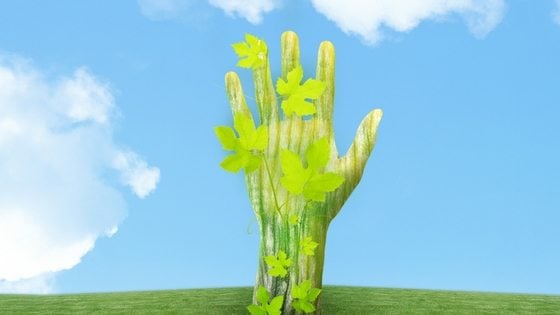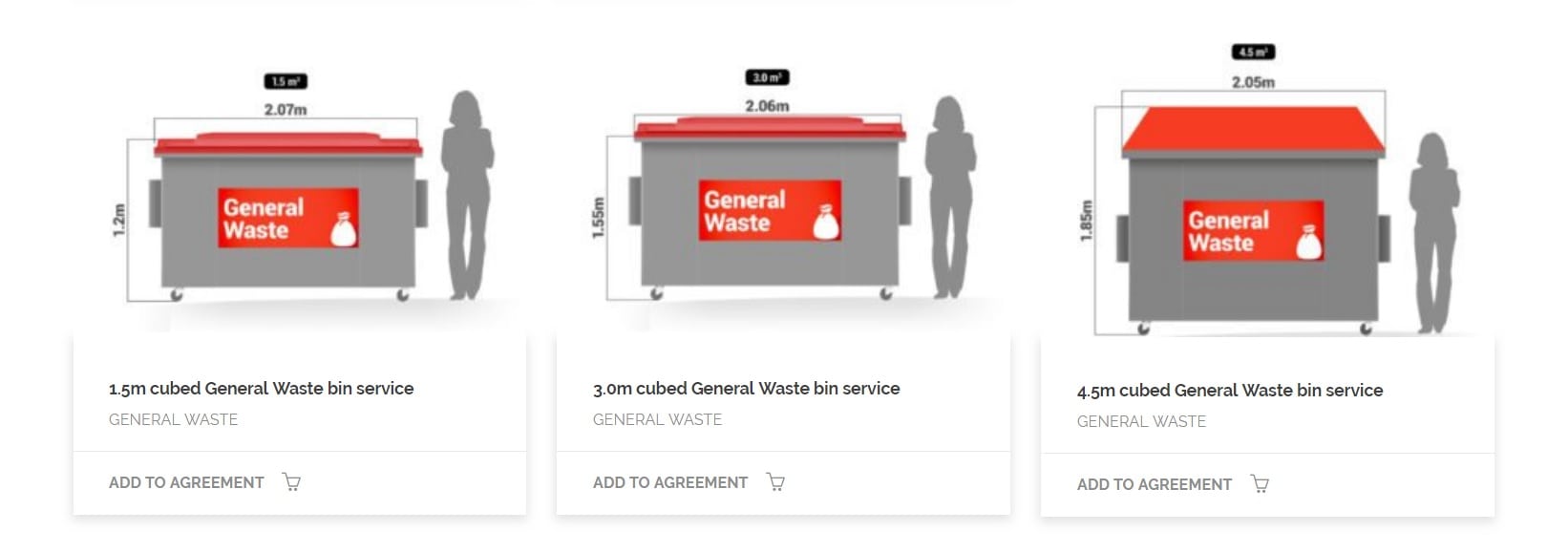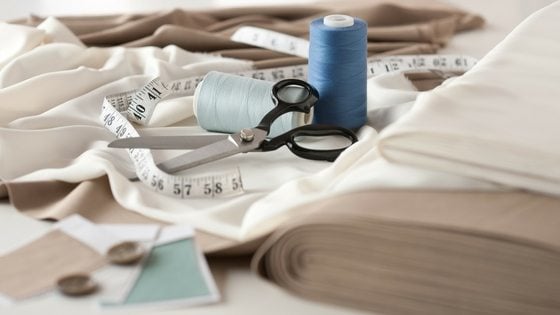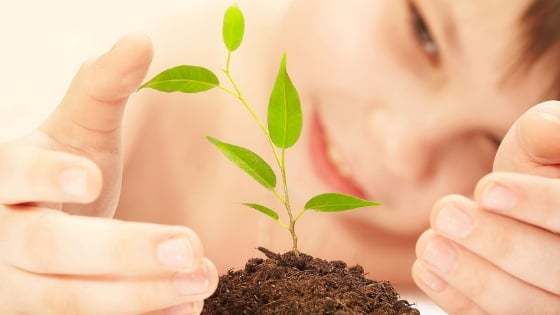
Business Waste Collection Services ✅
Business Waste Collection Services ✅: When a business starts thinking about its waste management plan – and what recycling rates it can achieve – it often shoots for the sky. In today’s blog, we want to cover an outline of what anything is realistically achievable using business waste management Australia services and some pointers on how best to reach your objectives. Whilst not arguing that you should aim for lower levels of recycling, we certainly argue for a phased or step-by-step program to ensure that you achieve your objectives and keep your staff engaged throughout the process.
Additionally, we will also cover various things (eg., textile and plastic waste businesses produce ) that can help with your business’s waste management and collection services.
>>Download Now: Free PDF Business Owners Guide To General Waste Bin Services
As in anything in life, with business waste management Australia and achieving your recycling objectives. It is vital to plan a step-by-step program to achieve your aims. The first step should be the low-hanging fruit. In other words, the easy recycling processes you can implement that are easy to understand and will also help save you money. In our blog, we will cover the step-by-step systems that may be useful.
Business waste management in Australia this 2023 (and in the years to follow) can actually recycle nearly all your rubbish. Of course, the first half is easiest to recycle, with the second half becoming trickier and requiring more thought and focus from your staff on site.

Introducing Waster
Waster is a business waste management Australia company with distinct differences. We focus on small and medium Australian businesses and provide our services on flexible 30-day agreements. So, you do not need to worry about lock in contracts or hidden fees. We also focus on recycling, resulting in an aligned objective between you and Waster. We seek to boost your recycling and reduce your costs. You can arrange all your services online today by clicking the blue button below:
General discussion about business waste collection services
If you started a new exercise regime on 1st Jan 2023, you will need to bear in mind that good things can sometimes take time. This is very relevant for business waste management Australia services.
In the example below, we are going to take the example of a food service business such as a cafe or restaurant. For our example business, the company sends all rubbish to general waste at the moment and has high intentions of recycling as much as possible. They realise how much their customers appreciate a business focused on the environment. See our blog highlighting how customers and investors are increasingly favouring businesses with a green focus on the topic of cheap recycling bins.
Here are the steps
The most important thing when putting together a practical and achievable waste management plan is to realise that even though the staff will want to do the right thing, making it easy is vital. If recycling is tricky, unclear or requires extra effort, the chance that staff will recycle is greatly reduced. The key thing to focus on is making recycling super easy and clear for all staff so that it becomes the easy thing to do.
Step one: always look at cardboard recycling
For nearly all businesses, implementing a cardboard bin collection service is usually the first logical step. As cardboard recycling is a huge international market, cardboard is the cheapest bin option available for most companies. Cardboard is quite bulky and hence removing it from your general waste bins is a great way to reduce costs. In Sydney for example, general waste will often cost more than twice as much as cardboard recycling.
Step two: consider a commingled recycling service
Commingled recycling bins are a very versatile and well-understood system. They are used for nearly all residential collections throughout major cities in Australia. So, staff and customers will have a good understanding of what systems to use.
The yellow bin can be used for bottles, cans, cardboard and packaging and can greatly reduce your general waste collection.

We often see problems with commingled recycling services. For example, people put incorrect products in the bins. Take note, plastic bags or bagged products can not be entered into the bin. See a blog here on the common issues.
In food service areas or areas where many passers-by have easy access to the bins (such as shopping centres), the bins can easily become contaminated with general waste.
This is why posters and colour schemes for bins are vital.
Step three: look at organic food waste services
The services above are generally cost-saving. You can also easily understand and use them for nearly all businesses. You should implement it as a first step. Once these initial changes have been made and bedded down, you can look at the next stage.
Organic food waste bins are a very good option for food service companies that are looking to boost recycling.
Using food waste disposal bins will take more effort and require changes in internal processes such as in the food preparation area. We often suggest that in the kitchen area, the staff use smaller stainless steel bins for organic food waste that can then be decanted into larger 120-litre food waste bins at the back of the premises (or the bin room).
Step four: remember how important it is to have the correct bin stickers and colours on bins
The Australian government sets national colour schemes for recycling bins and posters – the colour scheme is as below:
Red – general waste
Blue – cardboard and paper
Yellow – commingled recycling
You can see details here for the national colours. This page also provides lots of detail and ideas for posters and how to make it super clear which bin your staff should use.
The other benefit of using standard colour schemes is that all stakeholders such as office cleaners, truck drivers etc. will know which bin is which.
Something important: keep staff engaged!
One of the biggest reasons that business waste management Australia plans fail – is because your staff are not engaged in the process. The problem could be that they do not believe that the recycling bin really will be recycled or because walking to the recycling bin is time-consuming (and they are already super busy).
See an interesting article here on theconversation.com on whether people are actually suffering from recycling fatigue and whether we need to focus on simpler recycling technologies.
The good news is that technology is improving and mixed recycling bins are becoming more widespread as waste separation technologies are becoming more widespread. These huge facilities (often larger than a football field) can separate the waste streams into valuable commodities such as glass, plastic, cardboard etc.
In the near future, it is possible that we will not have to use recycling bins at all.
Just a quick note…
The most important thing is to set out a clear waste management plan (with knowledge of the business waste management Australia services available in your area). You then set out a step-by-step path to reach that objective.
It is much better to achieve an interim step than overreach and fail, which will result in you seeing your recycling remain static.
Implementing bin systems changes is usually the easy part. Changing staff behaviour and incentivising them to do the right thing can be much more tricky.
For insight into how much positive impact you can have by making small changes, see our blog on reducing or ending plastic straw usage.
You can see some of our customer success stories here.
Starting a new business?
Waster has a keen understanding of how difficult it can be to start a new business. It involves countless hours and investment of your savings and potential borrowings to get it up and running.
Ensuring your utilities such as electricity and business waste collection is performed reliably and at a good price is one of those things you do not want to spend too much time thinking about. The importance of waste disposal in business has never been more important.
The ANZ advert currently sums up a lot of the commitment required from prospective business owners.
When starting a new business, you will need to at least have a general awareness of the waste disposal regulations for businesses. The waste disposal regulations for businesses will of course vary depending on your type of operations. Some business waste examples include:
- Foodservice businesses will require a grease trap in most instances.
- Medical companies, tattoo parlours etc. will require a medical waste service.
- In hotter climates, you may require your business waste collection service to be performed more frequently as to prevent smells, flies, and whatnot from pestering.
You should check out your local EPA for further information on the relevant regulations.
Business waste collection through Waster: reliable, flexible and great prices.
At Waster, we are big believers in reducing waste in business by boosting recycling. This helps the environment, but also, of course, helps your bottom line. Due to tough levies on business waste disposal at landfills, most businesses can save significant expenses by recycling.
Due to ever-increasing waste levies (such as in Queensland), business waste disposal costs have been increasing significantly in recent years. So, keeping an eye on them can really pay dividends!
Through Waster you can take care of your waste and recycling requirements conveniently through our online model. You can easily see the bin sizes and volumes through our waste shop as below:

You can easily see the bin sizes and prices that you require as well as the varying recycling streams such as Cardboard, Commingled recycling (bottles and cans), and other services that you may require such as grease trap cleaning i.e. for business servicing or producing food.
Business waste collection services: why Waster offers a refreshing alternative to your business
There are a number of ways that Waster’s offer to your business is different from that of other suppliers. We really work on innovative waste business ideas:
Flexible contracts
All our services are delivered on flexible 30-day agreements so you do not need to lock yourself into a long-term, multi-year contract with the associated price rises and rollover clauses. This is a great way to keep a cap on business waste disposal costs.
No hidden fees or charges
Waster does not charge additional, and often unexpected fees and charges such as environmental fees (we take care of the environment in our base fees), bin rentals or site fees. We also deliver your bin for free! You just pay the business waste collection charge.
Exceptional customer service in the business waste collection
when you sign up with Waster, you will be given a dedicated contact number (mobile) as well as a ticketed online help centre. So, we have turnaround times to your request. If you have an issue like a missed bin etc. or need an additional collection, we will strive to get it sorted for you. Check out our recent blog on skip bin hire in Perth. Also, see our blog on Melbourne waste management. This is one of our biggest differences and simple waste business ideas.
About textiles
If you are a fashionista (that is someone interested in fashion – for our less up-to-date readers) you may not be aware of the business waste management issues caused by textiles and the low level of recycling rates that are achieved for these items in Australia.
Since the launch and growth of shops such as Zara and H&M in Australia in recent years, clothing is probably cheaper than ever in real terms (i.e. after adjusting for inflation). This has led to the concept of fast fashion; clothing is bought for a season (or even a single night out) rather than for the long term. I even remember reading that old-fashioned shirts were so long-lasting, that the sons could inherit their dad’s shirts!
Whilst it may seem reasonable that clothing could be easily recycled or donated to charity, that is not always the case. That is due to various business waste management issues.
Explaining Waster
Waster is a business waste management bin collection company with a real difference. We put lots of focus on recycling and removing waste from landfill and reducing customer costs at the same time. We provide all our business waste management services such as bin collection and liquid waste services such as grease trap cleaning on flexible 30-day agreements. So, you do not need to sign a long-term contract or risk rollover clauses. You can easily check prices and arrange your service online now in real-time!
Why business waste management struggles with textile waste
The topic was recently covered on the ABC War on Waste program – an expose of the Australian business waste management sector.
The website textilebeat.com explains that “Australians buy an average of 27 kilograms of new textiles each year and then discard about 23 kilograms into landfill – and two-thirds of those discards are manmade synthetic/plastic fibres that may never breakdown.”
“Sustainability consultant Jane Milburn said Australians are the second-largest consumers of new textiles after North Americans who annually buy 37kg each, and ahead of Western Europeans at 22kg”.
The real issue here is the lack of demand for recycling textiles – especially of man-made or low-quality amounts and the vast majority that end up in a landfill.

There are numerous charities in Australia that you can donate good-quality clothes to such as the Smith Family.
The website explains that they can save 7500 tonnes of textile waste from landfill every year.
They accept clothing as below:
“We accept good quality new or near-new clean, wearable clothes, accessories and bedding with no rips, stains or tears. Items with original tags or little wear and tear sell at higher prices in our stores, helping us to raise more funds for our community programs. Acceptable products include men’s, women’s and children’s clothes and accessories such as shoes and handbags that you would wear again.”
Waster’s take on business waste collection services
This is one area of business waste management where prevention is certainly better than cure. We would suggest that the best method of reducing the issue is to extend the life of your garments. In other words, by caring for them and using them longer.
Of course, it is very hard to rebel against fashion trends; but in this instance, it may be worth it!
See our blog on cardboard recycling for an easier recycling process.
Business waste collection services: could bacteria eat away our plastic waste?
Business waste disposal is becoming more and more expensive in Australia. This is due to the combined impacts of a landfill levy (in most states) that is designed to drive recycling.
On the other hand, recycling has become more expensive also. China has recently closed the door on low-quality recycling imports. Up to this year, Australia exported the vast majority of recycling collected through business waste disposal.
Most notably, Australia needs to find new and reliable methods to treat and process recycling and general waste. There are interesting developments in the area of plastic-eating bacteria that we will cover in this part of the blog.
How do these bacteria work for business waste disposal?
We will get a bit into the science of why plastic is hard to decompose and what the bacteria in question actually do below.
The RTE.ie website reports that:
“Plastics are complex polymers, meaning they are long, repeating chains of molecules that don’t dissolve in water. The strength of these chains makes plastic very durable and means it takes a very long time to decompose naturally. If they could be broken down into their smaller, soluble chemical units, then these building blocks could be harvested and recycled to form new plastics in a closed-loop system.”

“In 2016, scientists from Japan tested different bacteria from a bottle recycling plant and found that Ideonella sakaiensis 201-F6 could digest the plastic used to make single-use drinks bottles, polyethylene terephthalate (PET). It works by secreting an enzyme (a type of protein that can speed up chemical reactions) known as PETase. This splits certain chemical bonds (esters) in PET, leaving smaller molecules that the bacteria can absorb, using the carbon in them as a food source.”
These bacteria can work at 30°C- which would make them suitable to be a form of a bio-recycling plant.
Of course, there is still a long way to go in this area.
Could there be negative side effects?
One thing that was very interesting was the potential negative side effects of this sort of technology.
In the same way that the miracle of antibiotics has led to super bacteria that are resistant to medical treatment, plastic-eating bacteria could also get out of control.
If these bacteria got out of a recycling facility (which you have to assume they will ), they could multiply and start attacking plastic structures in the outside world!
Waster’s Take on this business waste collection service development
With plastic contamination of our natural environment becoming a bigger and bigger problem – as well as our inability to continue exporting low-quality recycling to China. This science is very interesting indeed.
Whilst at its earliest stage, those heavily involved should include it in a global and comprehensive plan for reducing plastic usage and effective business waste disposal.
You can check out an informative video on the topic below:

Interesting questions raised by ABC TV show
In our blogs, Waster covers progress made by the waste industry. This includes improvements in recycling, collection services, and environmental outcomes that a business, household, or the like can enjoy. As a result, we find it difficult to watch the negative light placed on the sector. However, we recognise it is vital to continually improve and do the best for customers and the environment.
Of course, we have also covered some tougher questions about the Aussie waste management industry in recent months. We have asked fundamentally difficult questions on topics like is a waste of time. Or, we have also asked: is prevention better than cure? Should we just stop using plastic in the first place?
Note: the answer to that one is yes!
Some of the comments from the story include: “There’ll be an uproar when communities or residents know.” Waste company manager.
“It’s a licence to print money. The people in the street have got no idea. No idea at all.” Community activist.

“The rogue element has continued to fly under the radar and the good part of the industry has had to pay the penalty for that.” – Industry Insider
“We need to lift the lid on the waste industry and show people what is actually happening.” – Community activist
Our opinion
These are some pretty interesting raising statements. We will not comment. But, we will recommend you check out the show and make up your own mind.
At Waster, we are very much of the opinion that actual success in recycling – whether business or residential – requires the aspects below:
- waste to be separated
- collection service to be available
- facility to be available to recycle it
- someone to actually use the recycled product
- and a financial reason (i.e. profit or government support)
As you will see in our regular blogs, when recycling breaks down, it is because one of the issues above is faulty or missing.
Be careful…
It is very easy to blame supposedly dodgy waste collection service companies. But in many cases, what is supposedly recycling is actually contaminated rubbish.
There is a lot of blame to be apportioned in the environmental fiasco that is modern Australia. But the real culprits are more widespread than just waste collection service trucking companies.
See our blogs on waste in the movies in garbage removal or Sydney landfill.
For tips on how your small business can grow its website, see Jim Milans’ website for some great link building tips. Also, check out our post on how being a sustainable business can help you win customers.
See our blog on Adelaide waste management for how SA is seeking to increase the powers of the local EPA.
What to do if your bin is not collected on schedule
One of the most annoying things for any business as regards waste management services is when bins are missed or not picked up on the scheduled day.
When you arrange your waste collection services, you often do not really put much consideration into whether the bin will actually be picked up on time – you pretty much assume that is a given. You can check out useful articles on booking an online Sydney waste management or rubbish removal Brisbane service here.
Most major Sydney waste management or major city-based rubbish removal companies throughout Australia publicise collection accuracy numbers of over 95 per cent. You read that right, more than 95 per cent of scheduled waste collection services are reported as performed on the scheduled day. However, of course, this means that roughly one in twenty collections is missed.
This could mean that a collection is missed every couple of weeks (depending on your schedule).
Waster.com.au provides low-cost, flexible and most importantly on-time waste collection services across all major Australian metro regions including Sydney, Melbourne, Brisbane, Perth, Adelaide, Canberra, Darwin, Newcastle, Central Coast, Gold Coast, Hobart, Wollongong and Geelong. You can check out our introductory articles on waste management in Hobart, Darwin waste collections, waste services in Wollongong, waste management in Canberra and waste collection in Adelaide.
Waste collection services: reasons why they (or we) missed your bin
When we deal with major corporations nowadays, we assume everything should run like clockwork. However, due to legacy systems, old-fashioned operating habits etc., sometimes industrial businesses are not as slick in operations as they should be. Common reasons why bins could be missed include:
The first waste collection service missed
If your first collection is missed, it could be down to simply an administration error by the garbage collection company. The run sheet has to be updated with the new location. Of course, there is a reasonable chance of some human error as to site address, access instructions, keys, padlocks etc. This should be sorted by the second collection and things should run pretty smoothly from there.
Bin not out
Quite often when a bin is not collected, it could just be that the client forgot to put the bin out i.e. if usually stored in a garage or yard. In that case, there is not much the garbage truck driver can do.
No access codes or keys
If you change the access codes on the entrance gate or change the padlock – you will need to provide this to the waste collection services company. This can easily be forgotten.
Contamination of bin
If your bin is a recycling bin such as a cardboard collection, you need to be careful to not put general waste in it. Most waste companies will reject bins with a certain degree of contamination. The bin will then need to have the waste removed or it will be collected as the more expensive general waste category.
Overloaded bins
If your bin is significantly overloaded or overflowing, the company may not be able to collect it if it is too heavy or will not collect the overflow. The driver is not employed (or importantly paid) to clean up yards and hence will leave the waste on the floor
Cars blocking bin
If your bin is positioned in a private yard area, be careful where cars, trucks or other plant or machinery are positioned. The driver will make all reasonable efforts to access the bin but can not move your property etc.
In most cases, if a bin is missed by the fault of the waste collection services company i.e. due to traffic on the road, bad weather, account set-up issues etc., they will come the next day to collect (or as soon as possible) – you should ensure your bin is left out the next day to enable this collection.
You should also be aware of what you will be charged if the bin is missed due to not being put out etc – most waste companies have varying policies on this. The other vital thing to remember is the contact details of your garbage collector to report missed bins and schedule catch-up services. You can also check out our overview of waste management in Geelong.
Waste bin services for clubs and sports associates!
Mr Waster was recently asked to contribute an article on entrepreneurship to a rugby magazine – it brought back memories of getting smashed on the school sports field!
I will be honest and say that I was not great at sports. I was also not that good at academics either. However, we all get through life – and look at me now – living the dream in the waste collection Australia sector. Even though I am being a bit sarcastic – I really do enjoy the waste management sector – and especially working with SMEs to boost recycling.
How Rugby and Sports can give you the toughness to start a business
Waste collection and recycling can be a pretty tough business. But when you’ve been in a scrum on a cold, muddy day, there are not many challenges you would not take on.
At Waster, we really work hard to make waste management a much more pleasant experience. To this end, we have put an end to lock-in contracts, hidden clauses and rollover, evergreen terms.
With Waster, your waste management and recycling are now much more like your phone bill or other modern tech services!
So, tell me a bit about Waster’s business waste collection services
Waster.com.au or simply Waster is an Australian online business that provides waste bins and recycling services to small and medium businesses. Their big differentiator is that they offer flexible agreements. So, small customers do not need to sign long-term contracts. They can just focus on recycling so as to keep customer costs down and help the environment.
Mr Waster said: “I went training for a few weeks, but was amazed at how hard the hits were. I remember one small guy; I thought this would be easy, but he put me on my back”.
My business partner now is a South African and I have to listen to how great the Springboks are every day!
Helping a sports club business boost recycling through smart waste collection services
Waster works with many rugby clubs and sports teams to help them boost recycling. Mr. Waster says” It is always good to remember that organisations can often boost recycling, whilst minimising their costs for waste” This is because valuable commodities such as cardboard, plastic, metal etc. can be recycled (resource recovery).
It is a good way to engage your club members by making them aware of your recycling efforts. This can, of course, move to the clubhouse also. By keeping bottles and cans out of your general waste, you can greatly reduce any waste going to landfill.
We are also increasingly seeing more progressive clubs compost their food waste. Even leading restaurants are now using small composters to turn food waste into high-quality compost – and this is easily something a sports club can do.
Check out an informative short video on organic food waste bin options – suitable for nearly any business:

“We have talked about sponsoring a local rugby club here in Sydney. But, they are quite reluctant to have Waster written on their jerseys”.
What was the worst thing about working in the waste industry?
Let’s be honest; sometimes, the waste industry can be unpleasant. Boosting recycling and helping smaller customers is the best bit. The worst experience to date was when a customer’s bin was not picked up for a few days in a row. I had to empty it myself into my van. On a hot Australian summer, that is never fun. It makes even a scrum seem ok!
Waste collection services for businesses
Getting your bins collected on time and at a good price is usually the only thing we really think about when arranging our waste collections. However, have you ever asked yourself where the collected waste actually goes? Or, do you ever wonder where it is dumped in landfills? With the growing metro regions throughout Australia, finding sustainable landfill sites is becoming more and more difficult as populations rise. In this part of the blog, we take a look at where waste is dumped throughout Australia.
Waste collections: let’s look at where they dump our waste!
We have been quoting lots of information recently from an excellent article at theconversation.com.
This article provides a really good overview as to where they dump the collected waste in Australia. The article makes clear that calculating the exact number of landfills is not actually that easy. There are however databases such as the National Pollution Inventory or the National Greenhouse and Energy Reporting Scheme.
“Queensland reports the most sites, followed by New South Wales and Western Australia. Since lifting dumping levies, media reports estimate that 10% of Queensland’s landfill comes from interstate.”
“Victoria and Tasmania have a high proportion of large-to-medium sites, while NSW has the most large sites, matching its relatively large population. Queensland, Western Australia and South Australia have relatively high numbers of small sites, reflecting their highly dispersed populations.”
“The Northern Territory, the only other jurisdiction to not have a landfill levy, generates just 1% of Australia’s waste.”
Additionally…
“Most of Australia’s waste goes to a small number of large sites. However, the majority of Australia’s landfills are small, receiving less than 20,000 tonnes of waste per year. The lack of precise national data on these sites is a real problem, as small, unlined landfills can still have a major localised impact.”
The other interesting thing to note is how far some landfill sites are from the metro regions they serve. The Woodlawn landfill, 240km southwest of Sydney, gets more waste than any other landfill in Australia. Adelaide’s main landfill is also 90km from the city. We need to think as a society about the carbon emissions caused by shipping our waste collections this far away.
See our related blogs on how much waste ends up in landfill and also the new ban on plastic bags in Brisbane.
Check out our blog on how lotteries could help boost recycle bin rates.
Referral program: giving a bit back to our loyal customers
As another method of reducing costs and commercial waste collection prices for our customers, Waster operates a customer referral program. Click the banner below for more details.
 We put no limit on how many referrals you can make. So, please mention to us if you have mentioned us to your friends and neighbours.
We put no limit on how many referrals you can make. So, please mention to us if you have mentioned us to your friends and neighbours.

See our blog on why a budget waste management service does not mean a low-quality service.
Leave a Reply Cancel reply

Product categories
Most Popular Posts
-
Commercial Waste Management Services: Reduce Waste Collection Costs! 🚍
-
Medical Waste Disposal: Everything You Need To Find Out In 2024! 💉
-
Rubbish Removal Sydney 2024: Better Bin Collections For Business ✅
-
Clinical Waste Disposal 2024: What To Know About Business Clinical Waste ⚕️
-
Secure Document Destruction 2024: All About Security Bins Shredding 🔒
-
Free Cardboard Recycling 2024: Can I Get Free Cardboard Collection? 📦
-
Confidential Paper Disposal Bins 2024: What You Need To Know About Shredding! 🔒
-
Recycling Bins Australia 2024: Recycling Can Boost Your Profits! ♲
-
Commercial Wheelie Bin Collection: What Businesses Need To Know In 2024 🗑️
-
Commingled Recycling 2024: Why Commingled Bin Is Key To Recycling 🍾













